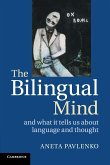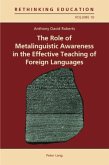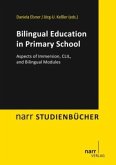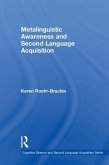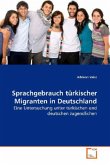Although some studies claim that all bilingual
children attain metalinguistic awareness (MLA)
earlier than monolinguals, others suggest that such
an advantage does not occur, or is only found for
balanced bilinguals, or on certain types of tasks.
However,the majority of these studies investigated
bilingual children who spoke typologically related
languages, and with tests administered in only one
of the two languages.Therefore, this book examines
whether relative language typology or language of
testing affects the bilingual advantage in MLA.The
book critically reviewed and compared studies that
investigated MLA in monolinguals and bilinguals.
Then it empirically tested the MLA of young English
monolinguals and Arabic-English bilinguals.The
analysis should broaden our understanding of how
bilingualism may affect young children''s MLA in two
dissimilar languages.This book is useful for
educators in bilingual education, and researchers
who want to replicate the findings with other
subjects speaking typologically dissimilar
languages.
children attain metalinguistic awareness (MLA)
earlier than monolinguals, others suggest that such
an advantage does not occur, or is only found for
balanced bilinguals, or on certain types of tasks.
However,the majority of these studies investigated
bilingual children who spoke typologically related
languages, and with tests administered in only one
of the two languages.Therefore, this book examines
whether relative language typology or language of
testing affects the bilingual advantage in MLA.The
book critically reviewed and compared studies that
investigated MLA in monolinguals and bilinguals.
Then it empirically tested the MLA of young English
monolinguals and Arabic-English bilinguals.The
analysis should broaden our understanding of how
bilingualism may affect young children''s MLA in two
dissimilar languages.This book is useful for
educators in bilingual education, and researchers
who want to replicate the findings with other
subjects speaking typologically dissimilar
languages.


